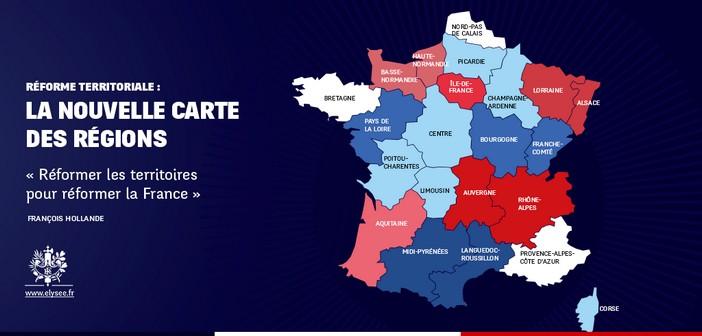Yesterday, Parliament adopted the territorial reform that defines the respective responsibilities of local authorities. The NOTRe law project (New Territorial Organization of the Republic) establishes the new respective competencies of regions, departments, communes, and intercommunalities. From now on, each will have its own jurisdiction, and there will be no question of encroaching on the competencies of others.
Until now, the principle of this general competency clause stipulated that departments and regions had the right to act in all areas, in the name of local public interest.
Thus, regions will have sole responsibility for granting direct assistance to businesses and will play a leading role in spatial planning, environment, and vocational training. The regions, which already managed the TER network, are entrusted with the management of school transportation, bus stations, intercity transport by coach, as well as local rail transport. The goal is to open up rural regions by combining several modes of transport.
The departments, on the other hand, are entrusted with the mission of fully supporting the population, such as distributing social aid. They retain the management of the road network and ports.
Intercommunality is strengthened: the 36,700 French communes are required to be part of a community of communes, an agglomeration community, or linked to a metropolis. By 2017, to strengthen the power of these local authorities, these entities must have a minimum of 15,000 inhabitants, compared to 5,000 inhabitants today. Adaptations will be possible for the least populated areas of the territory, and no threshold will be imposed on mountain areas and island territories.
These intercommunalities will be responsible for managing waste, tourism, and the reception of travelers. And from 2020, they will also have to manage water and sanitation instead of the communes.


